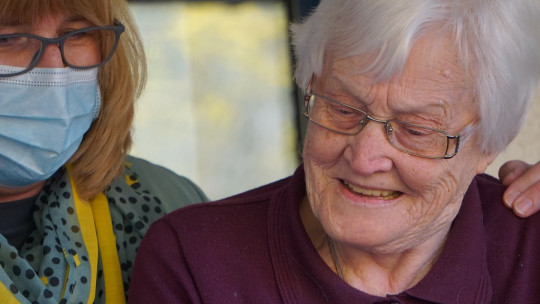
Almost all of us know or have experienced the situations that caregivers of dependent people face every day.
It seems that these people live for the well-being of those they care for and they themselves take a backseat. This fact gradually harms the caregivers, sometimes until they become ill themselves
Whenever I have parents or caregivers in front of me I give them the same example. When you board the plane, the steward who instructs you in safety measures says something like: if you are traveling with children, please put on the oxygen mask first and then place the child on yours. And this is the fundamental idea, almost the mantra, that must prevail in these situations; If we don’t take care of ourselves we won’t be able to take care of others
What can you do to take care of yourself as a caregiver?
Caring for a dependent person requires time, attention, effort, patience, love, emotional management skills, a lot of energy, etc. Due to the intensity of these situations, one of the characteristics that usually occurs is that caregivers forget all the other roles they have and focus solely and exclusively on this role. Your life is caring and everything else is added to this activity.
This condition is sometimes well regarded by society and is even accompanied by comments such as “what a good person you are”, “you will be rewarded for this”, “this is what a son/daughter has to do”… But reality is that Forgetting the other roles we play in life hurts us more than it helps us since, whether we like it or not, there are functions that we cannot exclude and that must also be fulfilled so that everything works and we can maintain a balance in our lives.
1. In the family and couple context…
The fact of focusing on another and always paying attention to them first has repercussions in the family, social, work and personal context. As mentioned before, it often happens that other roles we have (child, partner, mother or father, etc.) are forgotten. Logically, each care situation is different and so is each family system.
It is important to remember from what role we are communicating with others; If we have a partner we have to communicate with them from that position (not from that of caregiver) and we should try to leave space for the relationship. Limit the role to those situations that require it and letting other roles that we also have come out and grow will help us enjoy other parts of our life, limiting the emotional load and increasing the feeling of control.
2. In relationships with friends…
The network of social contacts is usually damaged, since there is practically no time to go out for a coffee or do some activity. Furthermore, it is also often the case that the quality of relationships decreases because The majority of information that these people can give on a personal level is scarce and almost always related to the role of caregiver
Reserve time to contact friends even online or by phone, limit the intensity of the discourse that occurs about the care situation, look for online spaces where I can interact with other people or hire an external caregiver one or days a week. the week in which to dedicate time to social life, are some ideas so that this social network does not fall apart.
3. In the work context…
The work level is also usually affected, with innumerable permits, sick leave, lack of attendance, hours to recover, etc. Sometimes caregivers must leave their jobs to care for this person. Teleworking is an option that opens up many possibilities for people who are in this situation. Not disconnecting from work, even if you have had to leave it, and continuing to train and renew yourself at an educational level will help you remain motivated and open up new job opportunities.
@professional(2061676, “Are you thinking about starting a psychotherapy process?”)
4. In the management of emotions…
On a personal level, feelings of frustration, anxiety, guilt when doing something for oneself, sadness about the situation may appear, and sometimes, anger and fear also have a place.
Leave spaces where you can spend time paying attention to yourself such as meditating, reading, taking a quiet shower, listening to music… it will help those feelings of exhaustion, anxiety and frustration to decrease.
These situations are complex to handle on an emotional level and most of the time it is advisable to suggest that they go to therapy so that they can sustain this situation without it harming them excessively.
5. Regarding physical health needs…
On a physical level, problems related to sleep hygiene, lack of physical activity, muscle pain, headaches and extreme fatigue also often appear.
Maintaining eating, sleeping and physical exercise habits is the basis for us to be well and maintain a positive and patient attitude.
summarizing
So Remember that you must put yourself first to be able to take good care of yourself, this does not mean being selfish but intelligent and empathetic with oneself and with the situation one has.








